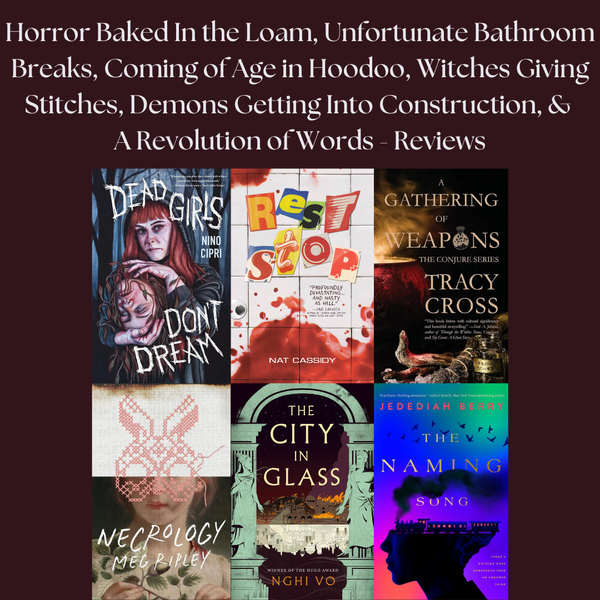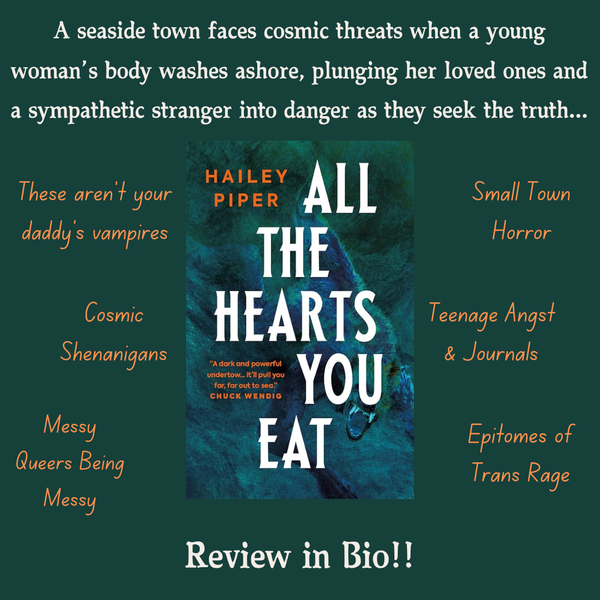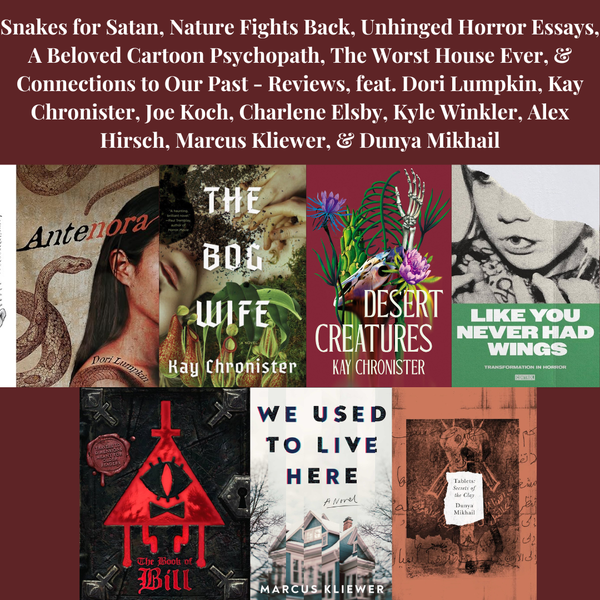The Intimate Relation of Faith & Horror, Surreal Queer Depravity, Not Your Mother's Mermaid, A Child's True Nightmare, A Song to Destroy the World, and Fatherhood at the Intersections of Whiteness - Reviews
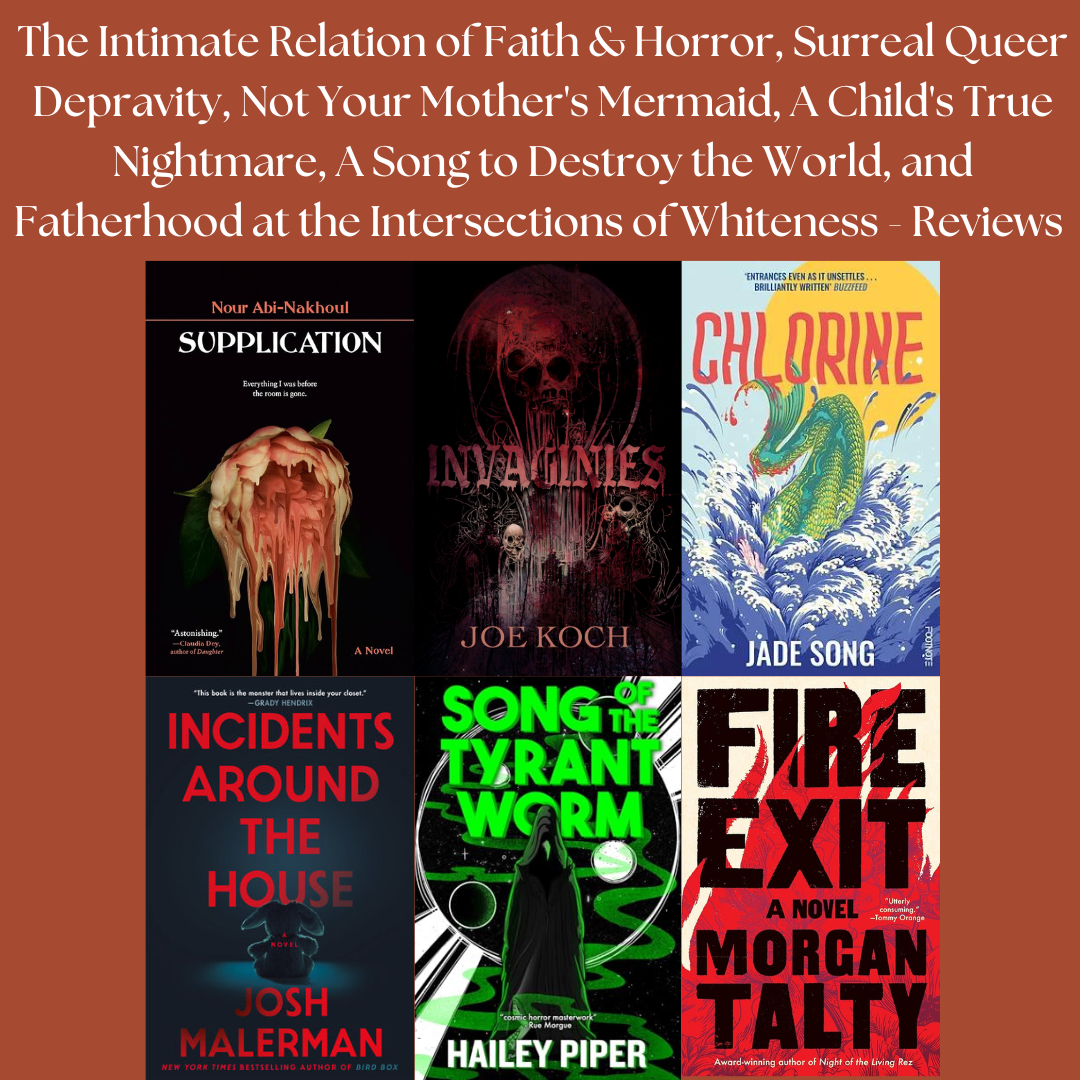
Woof, it has been a hectic few weeks. Trying to finish this review piece was hell in a handbasket, but WE MADE IT BABYY!! Also, I wanted to take my time because these are some in-depth books, and I wanted to offer them the attention they justly deserve.
Below are some books I've read recently that absolutely knocked my socks off and then set them on fire. One was a 2023 book I was finally able to get to, with the rest being fairly recent juggernauts that are changing the way we approach books, either way, y'all are in for a sweet treat.
Let's dig in...
Supplication by Nour Abi-Nakhoul, Strange Light
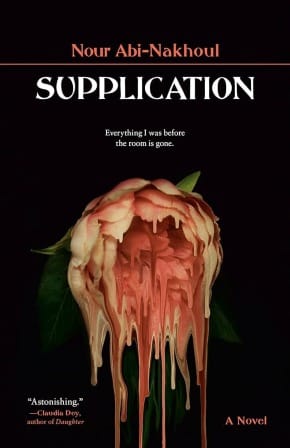
A woman awakens in a dark and dingy basement with no memory of her life before this awakening. In front of her is a mysterious man, her presumed captor, who proceeds to stab our unnamed protagonist, leaving her to bleed out in her confinement.
However, following her succumbing to these wounds, she reawakens again. The man is nowhere to be seen, and our narrator is able to escape from the basement. From this moment onward, readers are at the mercy of the surreal, nightmarish, non-linear literary mystery horror that is Nour Abi-Nakhoul’s brilliant Supplication. This story is absolutely not for more mainstream readers, but is a wealth of gorgeously poetic stream-of-consciousness thoughts of a character who finds herself reborn in a world going as mad as she is. Or is it?
I want to thank Sofia Ajram for putting this book on my radar, and by extension the fantastic David Demchuk for putting it on Sofia’s radar. This is my second Strange Light release, following Anthony Olivera’s breathtaking Dayspring, and I can confidently assess that this publisher is putting out some of the most challenging, yet rewarding narratives from our Canadian colleagues.
If you were to judge this book by its Goodreads reviews, you likely wouldn’t give it the time of day, as it stands at a 2.80 stars, with most reviews being scathingly negative. For those who know my feelings about Goodreads, you’ll know this only pushed me to order it faster. If Goodreads hates a book, I often find that I like it, and that’s all I’ll say about that. But I do understand why so many people strongly disliked reading this novel.
Supplication is not a straightforward read in the slightest, predominantly meandering with our narrator’s fractured and bewildered psyche, which only deteriorates as things become more nebulous…and violent. Where most traditional horror novels use form to build tension, Abi-Nakhoul instead keeps you uneasy throughout the entirety of this nightmare. Moments of sudden violence swiftly meld back into a feverish placidity. While some found this particular approach to be rather boring and tedious, I found myself all the more captivated and voracious for more.
Much like Dayspring, this novel utilizes faith and the concept of rebirth as a means of engaging with trauma–in this case, violence against women, as well as how violence is often used as a means of testing and measuring faith as our narrator finds herself at the mercy of something that asks for chaos and blood. The title is apt in how much our heroine/antagonist is left at the behest of this force, but comes to find herself beholden and supplicant to it.
While I wouldn’t recommend this book to everyone, if you are a reader that seeks out psychological books that feel like their own hellish experience, Supplication has so much to offer within its prose, execution, and completely unhinged philosophy. Nour Abi-Nakhoul is a staggering and meticulous talent and we are so lucky to read her.
Invaginies by Joe Koch, CLASH Books
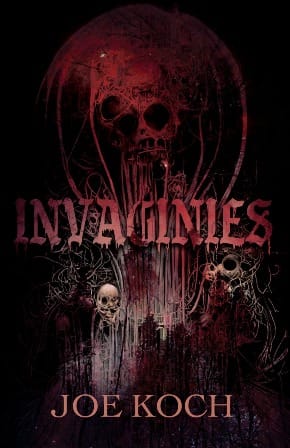
I’ve been trying to read Joe Koch for YEARS. Their books have always appeared on lists from booksellers and authors alike, but it was typically difficult to get hands on much of their work, which is why I was giddy with excitement at CLASH’s announcement of signing Koch for a new story collection, Invaginies.
As per their bio, Joe is described as writing “literary horror and surrealist trash,” which honestly rings true for these complex creations of cosmic, body, and existential horror. Sensual, academic, repulsive, these are merely a few words I would excitedly provide to explain what makes these stories utterly compelling.
The degenerates found within its pages are the epitome of humans human-ing badly–when they are human. Murder, sexual debauchery, revenge, bodily…transcendance? Mutilation? There’s no easy way to describe half of what happens in these stories, but Koch holds such a grasp upon their visions that I found myself merely nodding along as the surreality unfolded, then re-inverted, before me. They additionally drop little bits of theory and philosophy throughout, making for some hilarious insight while utter depravity claws at the walls of sense.
None of this even approaches the ways in which transness and queerness figure into these stories, which is quite a lot, as well as being deployed in some of the most unique and horrifying ways I have ever witnessed in fiction. However, there are moments of tenderness as well, like in the oddly endearing and heart-wrenching “I Tied Your Heart On a String” and “The Love That Whirls.” I never expected to get emotional during this collection, but boy will those do it.
Invaginies reflects the punk ethos of CLASH perfectly, deftly skating the line between literary and obscenity, but never ringing as obscene for the sake of pushing boundaries. The rage of these stories is transness at its most uninhibited, similar to M. Lopes de Silva’s equally brilliant debut from this year. If you like your queer horror/fiction to ere on the weirder side, this is absolutely one to pick up for the upcoming spooky season.
Chlorine by Jade Song, William Morrow
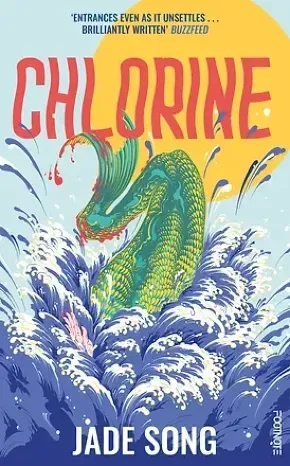
My god, this brilliant, heartbreaking book…
Chlorine follows the coming–and becoming–of age of a young girl, Ren Yu, whose life as a high school swimmer becomes much more complicated with the onset of puberty, as well as desires to transcend her pesky human form and become the mermaid that populated her early books of myth and folklore.
There is so much going on in this book, and each facet feels perfectly in place with a back and forth narration from Ren and her friend, Cathy, whose letters-in-bottles to her friend reveal their own heartbreaking loss from Cathy’s queer desires that she never felt comfortable to share with Ren.
At the center of this tale is a story of growing up in rural Pennsylvania as a Chinese-American girl, facing the stereotypical racism one might expect, alongside a much darker current that follows the creepy and horrific behavior of Ren and Cathy’s swimming coach, as well as the male members of the swim team. The coach singles Ren out specifically, not only as a means of chasing her racial difference, but because she consistently succeeds for him, until she doesn’t and incurs his extreme wrath.
However, it’s not solely the artifice of sexism, racism, and predatory behavior that make this coming-of-age literary horror particularly compelling. While we may believe that Ren is our protagonist, Song provides a more complex narrative in detailing Ren’s wrenching from what she views as “human” problems and desires, as she begins to view herself as separate from her peers and family. We witness her manipulate everyone close to her to explore humanity, but additionally reinforce her departure from human to mermaid, all leading up to its ambiguous and gruesome climax.
Chlorine is a chilling monster origin story told directly from the perspective of the monster, while deconstructing the enduring trope of monstrous Asian women. However it additionally utilizes this origin as a way of exploring non-binary identity, especially within a series of sequences where Ren is able to explore her sexuality with an enby lifeguard she volunteers with, showcasing one of the few characters who fully recognizes Ren’s difference as something celebratory, as opposed to Cathy’s uncertain response as she attempts to battle not only external and internal fatphobia, but the white supremacy she was raised with.
Perhaps one of the best literary horror coming-of-age tales of the last decade, this book is filled with righteous anger and fear, and will be impossible to forget upon its end.
Incidents Around the House by Josh Malerman, Del Rey & Penguin Random House
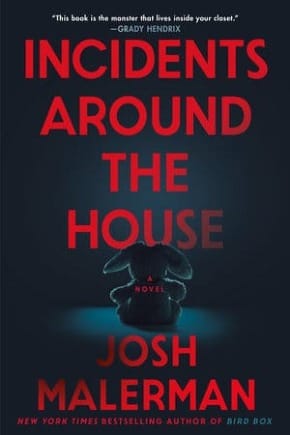
This particular review is going to be a ride, so strap in.
I’ve had quite the emotional journey with this novel, being that I am a newer Josh Malerman fan, but was super excited when a lot of the early buzz surrounding this novel was so positive, with many of the heavy-hitting authors and voices in the community calling it Malerman’s best novel yet, as well as “genuinely terrifying.” Obviously this excites me.
Color me excited when Penguin Random Audio finally uploaded the early audiobook. I immediately moved it to the top of my queue, as I wanted to have read it before its release, and boy, what a novel.
This nightmare is told from the perspective of Bela, a young girl who has maintained a long-standing relationship with an entity she dubs, “Other Mommy,” whose physical appearance is never clearly described and I hope to forever keep it that way, because what we were given was ENOUGH. Needless to say, Other Mommy is not the imaginary friend a child needs. Especially when that "friend" consistently asks if they can "go inside your heart," possibly the most unnerving catchphrase of the last decade.
It's not often we get horror novels from the perspective of a child, so to have a voice as clear and introspective as Bela's is a true treat, but additionally causes the novel's emotional beats to hit even harder. Because while this book is a haunting on its surface, the heart of proceedings beats with a pulse of grief over the struggle of divorce.
Mommy and Daddo–Ursula and Russ, respectively–are not in the most stable of relationships, though part of the reasoning for this doesn't come until much later. Ursula is a character who obviously struggles greatly with monogamy, wrestling with the responsibility of not only being a mother, but a wife as well. It's a characterization Malerman handles with his textbook nuance and empathy, providing a character we can't help but root for, even if we disagree with her behavior. I can't imagine our author is making an avid case for ethical non-monogamy, however, it's an experience and struggle, especially concerning motherhood, that we really don't see often.
Russ is a loving and protective father, while also acting as the more cool and collected branch of the family–well, at first. He loves Ursula and Bela with fierceness and is revealed to have supported his wife through many storms and missteps. Russ acts as both a voice of reason and a healthy dose of mysticism as Other Mommy becomes more and more malevolent toward them. He seeks help from someone whose methods are maybe seen as more wistful, hoping they can find some medicinal way to help Bela's increasing anxiety and visions. That goes right on out the window once Other Mommy throws caution to the wind, revealing its horror to Ursula and Russ and beginning the chase of a lifetime.
Being a child of divorce, this novel hit me really hard. Writing about divorce is a challenging, but to do so from a child's perspective is an even further challenge. Bela is incredibly intelligent, but even so, the ways in which Malerman approaches the subject through her eyes is a decided balance of wisdom and naivety, synthesizing emotions I still struggle to put into words to this day. What blew me away when I read 2022's Daphne was how adeptly he tackled describing anxiety with such clarity, and utilizing the Other Mother as its own metaphor for the crushing weight of divorce, as well as the vulnerability that comes with seeking comfort and light during such a chaotic time, lends so much narrative weight to an already rich narrative.
It is at this point that I reach the funny part of this particular review. The ending to this novel is simultaneously surreal and disturbingly visceral. It's been a long time since I've experienced such an immediate negative reaction to an ending of a book. When I finished the audiobook, which by the way is FANTASTIC, I was so mad, I couldn't believe it. However, it was such a weird experience because everyone whose opinions I trust were raving about the novel, and I was sitting thinking...am I missing something??
My issues were predominantly with what felt like a cheating of the characters, following an immensely emotional and complex twist, and for the book to end as it did felt oddly cheap to me, which is insane because that's not how Josh Malerman writes!! This drove me crazy for DAYS, and I finally had a conversation with the great Sadie Hatmann that assisted me in further synthesizing my thoughts, bringing me to a form of understanding and peace that my initial read did not provide. Also helpful was Sadie going directly to Josh to answer some questions we had, with his answers assisting me even further.
I'm still sad, but, I now better understand why the book ends as it does. it may be a fairly bleak ending, but it's also one that makes perfect sense with what this book was setting up from the very beginning. Divorce is not a walk in the park. In fact, it's something that's completely devastating for both child and parent. It's an ending, a crumbling, of something that felt so stable that to lose it feels impossible. Other Mother ultimately is the impossibility and that is what makes this novel not only so powerful, but so utterly horrifying at the same time.
Yes, there is a big scary monster to fear, but there's also the uncertainty and pain of a future that has become completely unmoored and clouded by an uncontrollable hurt. Incidents Around the House is cinematic, but like the best horror films, you will never forget its climax, nor should you. Potentially Malerman's best yet, this is one of those novels that will go down in the horror history books as a bonafide classic.
Song of the Tyrant Worm by Hailey Piper, Off Limits Press
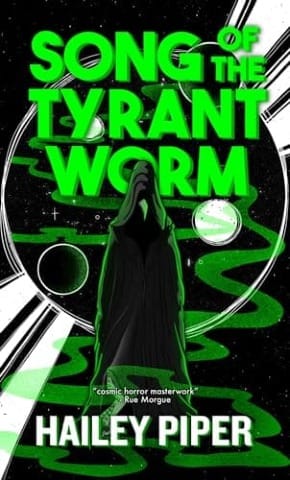
Four years ago, I began my Hailey Piper fandom with two books: the life-altering Queen of Teeth and the mind-boggling cosmic horror, The Worm & His Kings. By gosh, who would have anticipated that a sequel to the latter, Even the Worm Will Turn, would release just a few years later in 2023?? Well, it would appear that 2024 has ushered the conclusion to this vast, encompassing series with the release of Song of the Tyrant Worm.
Sometimes cosmic horror can be tricky to tie together when you’re writing a series, but if there were a writer who could do so with stunning ease, it’s gosh darn Hailey Piper. Returning to the rather reclusive character of the Gray Maiden, a Pangean responsible for bringing the Worm’s Bride to the larger council, we see events through her eyes as she continues on what begins to feel like a fruitless quest. Is this truly meant to be her purpose for all of time?
It’s when Gray stumbles upon two strangers swept up in the temporal shifting taking place due to the exertion of the Worm’s influence. Gray quickly becomes tethered and protective of these strangers, following them through each time dilation as their lives quickly become intertwined with the larger plot of the Worm.
Of all the Worm novellas, this one is my absolute favorite. Perhaps the audio performance of Allyson Voller influenced this somehow, with the empathy and character she infuses into Gray. I messaged Hailey with the passionate declarative, “I would literally die for Gray,” and I stand firmly by that. Her expressiveness, the ways in which she struggles with her supposed purpose and the violence that comes with it, serves to hearten us to this remarkable entity that we were given so little of in the first novella. Song shows exactly how by design that was, delivering a fantastic ending to what proved to be a contemporary cosmic horror epic that redefines the cannon.
Despite it's past, cosmic horror has witnessed a wondrous renaissance. Where many of the earliest narratives were steeped in the xenophobia of their creators, authors such as Piper are redefining what the genre can accomplish as a tool of anti-colonialism and a scathing critique of white supremacy and capitalism. We can look to our influences and use them as a means of changing the narratives of who we are as lovers of the genre.
Granted, we still have a few Hailey Piper releases before the year is out, so we'll see what else this titan has in store for us yet. So far, though, this one has got to be one of my favorites. A perfect ending to a masterful trilogy, is WELL worth your time and attention.
Fire Exit by Morgan Talty, Tin House
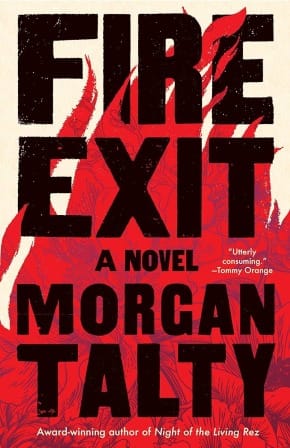
Time to break rank at the close, as this is the only book in this list that isn't a horror novel, but it sure as hell is a brutal one.
Another of my most anticipated novels of 2024, Fire Exit is Morgan Talty's follow up to the unbelievably stellar interconnected-story-collection Night of the Living Rez. Technically his novel debut, Talty weaves a heart wrenching tale of a father seeking to reconnect with his Penobscot daughter, Elizabeth, all while taking care of his ailing mother whose battle with dementia worsens day by day.
Charles Lamosway grew up on the reservation, but as soon as he came of age, he was thrust out, being that he and his mother, Louise, are white. She had married his stepfather, Fredrick, and they came to live with him, essentially making Charles a part of the fabric of the rez as a whole. This is how he met and fell in love with his love, and Elizabeth's mother, Mary. Being that Charles is white, Mary ultimately makes the decision to raise her away from Charles, so that her Indigenous identity does not become complicated by Charles's race.
What follows is a book dealing in the extremely complex conversations of bloodlines, legacy, parentage, and grief, as well as how we reconcile these themes within ourselves and the ones we love. Charles is a fascinating character with a unique experience. Despite spending a large part of his life on the Penobscot Reservation, with Fredrick being the man who ultimately raises him, he is still a white man without Indigenous blood.
We've seen in the last six or so years questions of "blood quantum" raising when folks like Elizabeth Warren claim Indigeneity when their ancestry, in reality, is a fairly small amount. It's a tactic that some white people utilize without realizing the harm that it ultimately causes, and this is what is at the center of Charles's struggle throughout the novel. He feels that Elizabeth should know the truth of her parentage and have some form of relationship with her father, despite Mary's wishes to the contrary. Mary very obviously worries about the emotional toll this kind of news could exact upon Elizabeth, especially with her daughter's very real health issues.
Meanwhile, Charles is facing the declining health of his mother, who herself has struggled with mental health throughout his childhood. Now with the rapid onset of her dementia, Charles becomes Louise's primary caregiver, alongside his alcoholic friend, Bobby, who forms a kind of kindship with Louise.
Also within the threads of this novel is a seeming mystery surrounding Fredrick's death when Charles was a young man. We're treated to bits and pieces as we go forward and backward in time, witnessing the dramas of Charles's life on the reservation and the rage of some of their neighbors in regards to a close friendship that leads to its own ostracization. It's through these flashbacks that we come to understand the complexity with which Charles views his identity. How his relationship and closeness to Fredrick helped him to feel Native, regardless of his whiteness, yet at the same time, we witness his whiteness in his entitlement toward revealing his parentage to Elizabeth, and the very real power dynamic that exists within that connection.
Talty displayed an intimate understanding of the complexities within the human spirit and it's connection to identity throughout Night of the Living Rez, which alongside this novel almost feels like its own prequel of sorts. Fire Exit truly feels like that next logical step, presenting an endlessly confounding exploration deeper into the themes that made its predecessor so amazingly compelling and emotional.
This is one of those stories that completely encompasses you, holding you in its jaws until you're completely relinquished of breath, before delivering some of its most impactful blows. There are no clear cut answers. There are no easy solutions. There is only humanity and its hunger for understanding, as well as a sense of belonging. While we aren't always on Charles's side, we come to understand the needs that drive him. The love that consumes him. It is within these contradictions that he becomes the most empathetic to us as readers, and it's due to Talty's awe-inspiring scope that we are able to do so.
An absolute contender for book of the year, Fire Exit is required reading for those forever chasing understanding of who we are and what that ultimately means.

